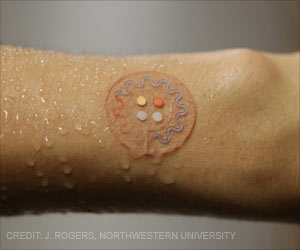Eating earlier in the day may be worth the effort to help prevent weight gain, hormonal markers implicated in heart disease, diabetes.
Highlights
- Delaying dinner time can increase weight, insulin and cholesterol levels and negatively affect fat metabolism.
- Insulin, fasting glucose, cholesterol, and triglyceride levels increase in response to eating late at night.
- Ghrelin, which stimulates appetite, peaked earlier in the daytime, suggesting that the participants received cues to eat earlier, and eating earlier likely helped them to stay satiated longer.
"Eating later can promote a negative profile of weight, energy and hormone markers such as higher glucose and insulin, which are implicated in diabetes, and cholesterol and triglycerides, which are linked with cardiovascular problems and other health conditions."
Early Dinner vs. Late Dinner
In the study, nine healthy weight adults underwent two conditions, one of daytime eating (i.e., three meals and two snacks between 8 a.m. and 7 p.m.) for eight weeks and another of delayed eating (i.e., three meals and two snacks eating from noon to 11 p.m.) for eight weeks.
There was a two-week washout period between conditions to make sure there was no carry over effect. The sleep period was held constant, between 11 p.m. to 9 a.m.
This allowed the team to measure changes in weight, metabolism and energy used, and made sure the two week washout allowed all measures to return to baseline before the next condition.
Respiratory quotient, i.e. the ratio of carbon dioxide produced by the body to oxygen consumed by the body that indicates which macronutrients are being metabolized, also rose during the delayed eating condition, indicating later eating led to metabolizing fewer lipids and more carbs.
The researchers also found that a series of other measures reflecting negative metabolic profiles increased in the delayed condition, including insulin, fasting glucose, cholesterol, and triglyceride levels .
Conducting a 24-hour hormonal profile, they also found that in during daytime eating condition, the hormone ghrelin, which stimulates appetite, peaked earlier in the daytime, while leptin, which keeps you satiated, peaked later, suggesting that the participants received cues to eat earlier, and eating earlier likely helped them to stay satiated longer.
This suggests that eating earlier may help prevent overeating in the evening and at night. As sleep-wake cycles were constant, melatonin levels remained constant in both groups.
"While lifestyle change is never easy, these findings suggest that eating earlier in the day may be worth the effort to help prevent these detrimental chronic health effects," said Kelly Allison, senior author on the study.
㜁e have an extensive knowledge of how overeating affects health and body weight, but now we have a better understanding of how our body processes foods at different times of day over a long period of time."
Similar yet much shorter previous studies have suggested similar results, but this is the first long-term study looking at the timing of eating patterns that also controlled for sleep-wake cycles, exercise, macronutrient intake, etc. to pinpoint the effects of prolonged eating at different times of day.
Reference
- Namni Goel et al., Timing meals later at night can cause weight gain and impair fat metabolism, Meeting - SLEEP 2017.
Source-Medindia










